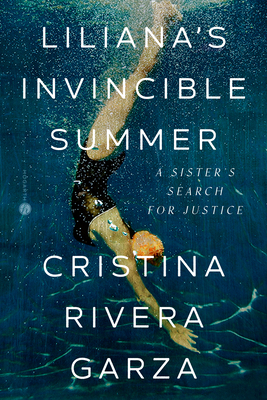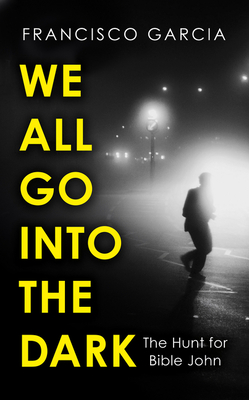Earlier this summer, I reread Truman Capote’s In Cold Blood. This was the first time I’d revisited the book since seeing Bennett Miller’s film Capote when it was released in 2005. Capote is a favourite film of mine, one I rewatch frequently and with undiminished admiration. Of course, Philip Seymour Hoffmann is out of this world in it. But it’s not just him. From the opening frame, there’s something about the texture of this film, the evocation of sense of place most of all, that keeps me coming back to it, wishing that there were more true crime dramas that accorded their subject matter this level of attention and restraint.
Over time and with repeated viewings of the movie it was perhaps inevitable that book and film had become inextricably enmeshed in my imagination. This was a good part of the reason I chose to revisit the novel. I have read a significant amount of true crime literature in the almost twenty years since first encountering Truman Capote’s magnum opus. How would it have fared in the onrush of time and memory?
If anything, it was better than I remembered. Not just a masterpiece of true crime literature but a masterpiece full stop. The attention to detail, the restraint, the beautifully jointed, watertight sentences. In Cold Blood is rightly called a novel, not simply because it goes beyond the reporter’s brief in imagining scenes, dialogue, alternative scenarios but because it is a novelist’s feel for structure and for narrative form that Capote brings to his material. The thing that surprised me most – the thing I’d forgotten – is how little Capote inserts himself into the text. There is just that one line near the end, in which he refers to ‘the journalist’, a person that can only be him, but who is neither named nor referred to again.
I have read criticism of In Cold Blood that suggests Capote’s obsession with the two perpetrators and his uncomfortably close relationship with Perry Smith in particular makes the book unforgivably unbalanced, that he ‘did not do right by the Clutter family’. Though one has to take account of and respect the views of those who knew the Clutters as neighbours, I would have to disagree with this assessment. Whatever his private turmoil, Capote does not in any way ‘favour’ the murderers. His summoning of an entire community and way of life, very much including the personalities and daily lives of Herb, Bonnie, Nancy and Kenyon Clutter is a act of imagining – I almost want to say resurrection – that favours nothing but the truth insofar as he was able to discover it, an inextricable tangle of opposing truths, contrary points of view, accidents of fate that are as horrifying today as they were in 1959.

More than sixty years ago and still, this story. There is nothing that can forgive or make right the evil act that ended the lives of a blameless family. But in literature as in life, the line between ‘evil acts’ and ‘evil men’ is a notoriously tricky one to navigate or to describe. That Capote attempts to do so is his job as a writer and he succeeds brilliantly. The only certain thing is that the death penalty helps no one, and solves nothing.
There is similarly much to contemplate in two more recent works of true crime, both published this year. Francisco Garcia’s We All Go into the Dark revisits the Bible John murders that took place in Glasgow in the 1960s – less than a decade after the Clutters were murdered – while Cristina Rivera Garza’s Liliana’s Invincible Summer recounts the murder of Garza’s twenty-year-old sister Liliana in Mexico City in 1990. In the case of Patricia Docker, Jemima MacDonald and Helen Puttock, no one was ever charged with their murders and the identity of Bible John remains a mystery. In the case of Liliana Rivera Garza, the identity of her murderer is all too clear – but he, similarly, has never been charged.

Francisco Garcia admits up front that he has little to add to the Bible John narrative as it is already known. His intention in writing the book is to examine the effect the crimes had on Glasgow at the time, their treatment by the media and the ultimately unsuccessful attempts of detectives to shine a light on the identity of the killer for decades afterwards. While I might have liked a little more commentary on the harshly constrained lives of Glasgow working class women in particular, Garcia’s work is honest, thorough and captivating and I like his book a lot. His unsensationalist, self-questioning approach to writing true crime should be noted and applauded. I hope his next book will push this envelope still further.
I know Cristina Rivera Garza’s work from her strange, elliptical 2012 novella The Taiga Syndrome. It would be impossible for her not to insert herself into the text of Liliana’s Invincible Summer – whole tracts of this heartbreaking narrative are inevitably her story, too – but the miracle she performs in allowing her sister not only to be properly seen for who she is but in some sense to be the narrator of this remarkable book is no less an act of literary resurrection than Capote’s. As an examination of coercive control, intimate partner violence and the only recently named and acknowledged crime of femicide, Liliana’s Invincible Summer is an essential addition to the library of true crime literature. As an elegy for a lost beloved it is equally indispensable.
Reading this excellent interview with Eliza Clark over the weekend – Clark is the author of the smartly original novel Boy Parts and has recently been named one of Granta’s Best of Young British Novelists – I was particularly struck by what she says about what it is that attracts her to true crime narratives:
“I’m just interested in people’s lives and the histories of places… True crime, done well, feels like one of the only times you get to read nonfiction about day-to-day lives.”
This chimes so exactly with my own reasons for being interested in true crime literature, why I think it’s important. It’s good to see new voices entering this arena, even better to see the inventiveness, seriousness and respect with which they approach this difficult and sensitive material. I cannot wait to read Clark’s new novel, Penance. And while I’m waiting, I have my own research to be getting on with…